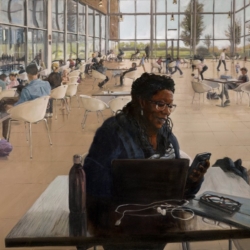To provide the best experiences, we use technologies like cookies to store and/or access device information. Consenting to these technologies will allow us to process data such as browsing behaviour or unique IDs on this site. Not consenting or withdrawing consent, may adversely affect certain features and functions.
The technical storage or access is strictly necessary for the legitimate purpose of enabling the use of a specific service explicitly requested by the subscriber or user, or for the sole purpose of carrying out the transmission of a communication over an electronic communications network.
The technical storage or access is necessary for the legitimate purpose of storing preferences that are not requested by the subscriber or user.
The technical storage or access that is used exclusively for statistical purposes.
The technical storage or access that is used exclusively for anonymous statistical purposes. Without a subpoena, voluntary compliance on the part of your Internet Service Provider, or additional records from a third party, information stored or retrieved for this purpose alone cannot usually be used to identify you.
The technical storage or access is required to create user profiles to send advertising, or to track the user on a website or across several websites for similar marketing purposes.
 Great Place To Work has announced its annual UK’s Best Workplaces list, based on feedback from around 250,000 people. Taking into account culture audits and employees’ perspectives the organisers say they have identified what makes these employers the best. (more…)
Great Place To Work has announced its annual UK’s Best Workplaces list, based on feedback from around 250,000 people. Taking into account culture audits and employees’ perspectives the organisers say they have identified what makes these employers the best. (more…)



































March 14, 2024
Our false memory of work in 2019 is stopping us from having better conversations
by Mark Eltringham • Comment, Workplace